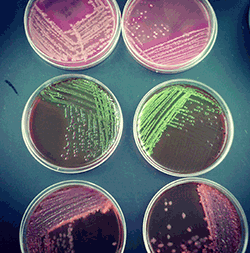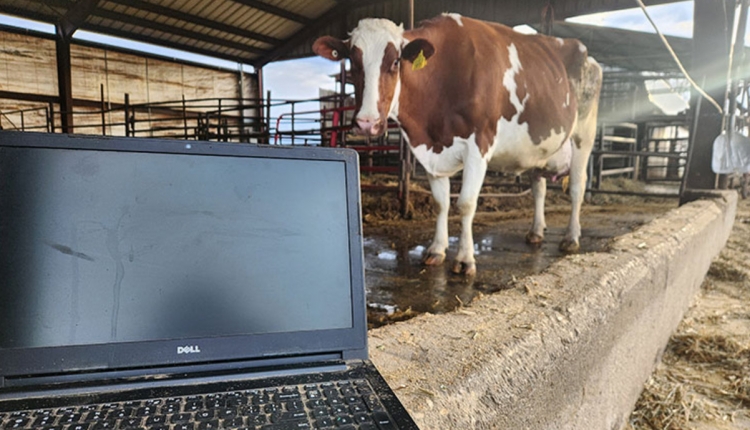 Antibiotics are a common remedy in today's society for human and livestock illnesses. However, there is a rise in antibiotic-resistant bacteria, which is creating concern. Many argue the value or drawbacks of antibiotics, but this blog is about a century-old alternative to kill infections that could be making a comeback.
Antibiotics are a common remedy in today's society for human and livestock illnesses. However, there is a rise in antibiotic-resistant bacteria, which is creating concern. Many argue the value or drawbacks of antibiotics, but this blog is about a century-old alternative to kill infections that could be making a comeback.What is the potential solution? Phages.
Phages are the most abundant organism on earth and are viruses that attack only certain strains of bacteria. They are different from antibiotics, as they only attack the targeted unwanted bacteria, not the beneficial bacteria, too. First discovered in 1917 by a French microbiologist, phages were successful and widely used (commercially available) in Europe until the 1940s, when antibiotics emerged.
Today's researchers working with phages are in the Bay Area of California at a start-up company, EpiBiome. They are working on phages to treat mastitis, the most costly disease in our industry. The concept is to isolate the right phage or phages from farm wastewater runoff (with the bacteria present) and create a combination that would treat mastitis infections. The water is put in a centrifuge and spun down to remove the water and leave the phages. They can repeat the process until they get the right phage or combination of phages to treat the particular bacterial infection.
How do bacteriophages work? "Bacteriophages latch on to bad bacteria, inject their own DNA, hijack the bacteria to create hundreds of copies of themselves, and explode the bacteria's cell, escaping. Those copies repeat the process, killing more bacteria," according to a San Francisco Chronicle article.
When we think of genomics, we think of matings, breeding decisions and marketability. However, with the advances in genomics and DNA sequencing, it can also lead to quicker discoveries when applied to research like bacteriophages. In EpiBiome's lab, it has been successful in killing bacteria. Trials outside the lab will be the true test. This company is getting attention and has been accepted in the Illumina Accelerator Program, a leader in genomics – the early DNA test that dairy producers used were Illumina SNPs. This connection will lead to greater exposure and opportunities to test their research.
While we know that manure is full of valuable nutrients when applied to land, we can now add potential cattle cures to its list of benefits. The hope is what is learned from mastitis can have human applications as well and minimize the rise of antibiotic-resistant bacteria in the future.

The author is the online media manager and is responsible for the website, webinars and social media. A graduate of Modesto Junior College and Fresno State, she was raised on a California dairy and frequently blogs on youth programs and consumer issues.









